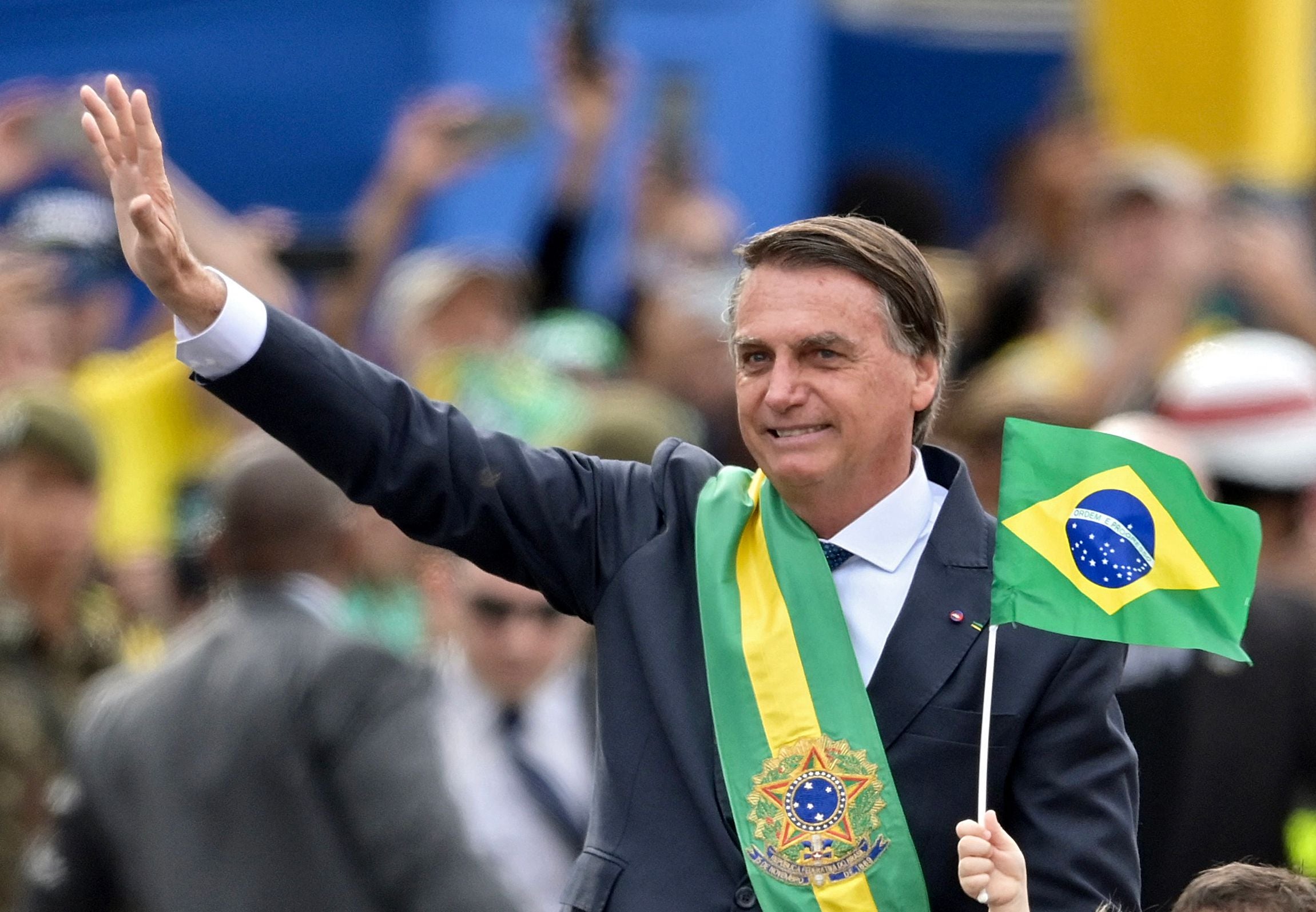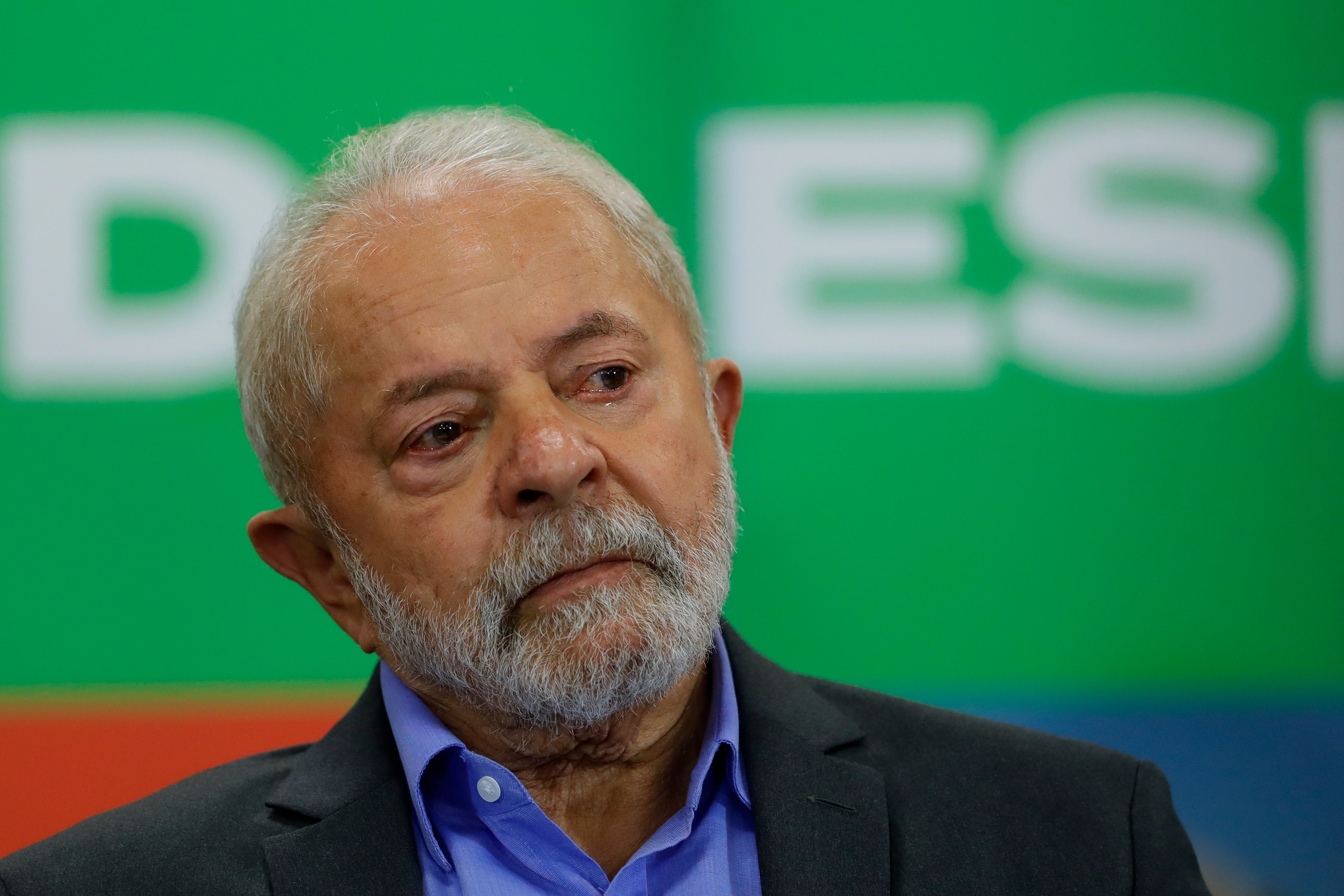In Brazil’s election, the future of the Amazon is at stake
Environmentalists warn the Amazon is heading for a tipping point that would have consequences for the entire planet
Your support helps us to tell the story
From reproductive rights to climate change to Big Tech, The Independent is on the ground when the story is developing. Whether it's investigating the financials of Elon Musk's pro-Trump PAC or producing our latest documentary, 'The A Word', which shines a light on the American women fighting for reproductive rights, we know how important it is to parse out the facts from the messaging.
At such a critical moment in US history, we need reporters on the ground. Your donation allows us to keep sending journalists to speak to both sides of the story.
The Independent is trusted by Americans across the entire political spectrum. And unlike many other quality news outlets, we choose not to lock Americans out of our reporting and analysis with paywalls. We believe quality journalism should be available to everyone, paid for by those who can afford it.
Your support makes all the difference.As Brazilians head to the polls on Sunday the future of the Amazon is at stake, experts have warned.
The two frontrunners in the presidential election are political heavyweights who offer opposing visions of how to lift millions of people out of hunger, reverse the country’s declining prosperity, and manage its vast biodiversity.
Right-wing President Jair Bolsonaro has presided over four years marked by record rates of deforestation and watered-down environmental protections. While his chief rival, former leftist President Luiz Inácio Lula da Silva, has pledged to address illegal deforestation in the Amazon after overseeing a decline in deforestation during his eight years in office in the 2010s.
“It is really a critical moment,” said Mercedes Bustamante, a professor at the University of Brasilia, Brazil and a member of the Climate Crisis Advisory Group. “It’s the Amazon, it’s all the other Brazilian biomes that are experiencing the same increase in deforestation rates,” she said.
Deforestation of the Amazon has boomed under Brazil’s right-wing president, who took office in 2019 having pledged further building in the rainforest and dismissing global concern about its destruction. At the end of 2021, deforestation there reached a 15-year high after jumping 22 per cent in a year. Then in July, the rate of tree loss reached a new all-time record for the first six months of the year, after an area five times the size of New York City was destroyed.
A loss for Mr Bolsonaro could lead to deforestation falling by nearly 90 per cent over the next decade, according to a recent analysis for the environmental publication Carbon Brief.
But the fate of the Amazon matters for more than just Brazil.
“Without the Amazon, we lose the fight against climate change,” said Bel Lyon, Latin America Senior Programme Adviser at the WWF. “The Amazon plays a crucial role in storing carbon and regulating the world’s climate as it releases water into the atmosphere.”
It is the largest rainforest in the world, one of the richest places on earth in terms of biodiversity, and an important carbon sink. Trees are crucial to slowing down climate change as they absorb carbon dioxide, one of the greenhouse gases that is leading to the rapid rate of global heating.
Last year, a study found that parts of the Amazon had turned into a net carbon emitter rather than a carbon sink due to deforestation, and the intensification of the dry season which led to an increase in the number of fires. It also cited other studies that found that global heating was causing an increase in tree mortality and a reduction in photosynthesis across the Amazon.

“It is getting dangerously close to a crucial tipping point which could see large areas transform from a resilient, moist rainforest into a dry, fire-ravaged, and irreversibly degraded state,” said Ms Lyon. “As well as being a tragedy for the people and the wildlife that call the Amazon home, we will not be able to limit global warming to 1.5C, with consequences for the whole planet.”
Alexandre Kōberle, an advanced research fellow at the Grantham Institute at Imperial College London, said this tipping point could happen in the next decade.
“The indications are that once you get to 20 per cent deforestation that would become a positive feedback loop and almost irreversible and we are almost at that point,” he said.
The stakes, then, are high.
“It’s hugely important,” said Mr Kōberle, of the election. “We need a shift in how the country approaches the Amazon.”
Experts told The Independent that with a Bolsonaro victory, this shift was unlikely to happen.
“If Bolsonaro wins we’ll get pretty much more of the same, a consolidation of this anti-environment rhetoric and action, probably more deforestation, more land grabbing,” he said. If Mr Lula wins commentators said things could change, but warned it won’t be easy.

Firstly, the make-up of Congress and who is elected as governors during the election will determine how much change Mr Lula could make.
Then he has to contend with parts of the powerful agricultural lobby that use land to farm beef and grow soybeans and don’t want to change their practices, as well as the weak law enforcement in the region.
There are international stakeholders to work with too - such as Europe - a major importer of agricultural goods from Brazil, said Mr Kōberle.
But Mr Lula could boost funding for environmental enforcement agencies, whose budgets have been slashed under Mr Bolsonaro and whose powers reigned in, and he could re-engage with the international community on climate, said Mr Kōberle.
“Decisions made by the Brazilian government following this election will have consequences for the whole world but it’s important too that other countries, including the UK, ensure that all products linked to deforestation are removed from product supply chains,” said Ms Lyon.
A spokesperson for the Brazilian government said: “The Brazilian government is fully committed to reducing deforestation rates in Brazil, in particular in the Amazon.
“Since last year, important measures in terms of law enforcement have been enacted, in an ongoing collaborative effort between multiple federal agencies, in the fight against crimes and harmful activities to the environment in the Amazon region. In 2021 the Ministry of the Environment doubled the budget for enforcement agencies. In 2022, this budget was again increased.
“Brazil deals with the enormous environmental challenges of our time more successfully than many other countries. The percentage of our territory covered by protected areas and the share of our energy matrix based on renewable sources, for example, are among the highest in the G-20.
“Moreover, compared to many other countries, Brazil deals very transparently with its environmental problems, by making data and information about the Amazon region publicly available, almost in real time.”



Join our commenting forum
Join thought-provoking conversations, follow other Independent readers and see their replies
Comments